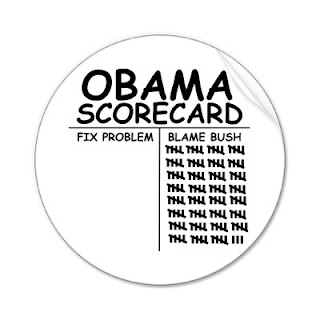 By Ross Colvin
By Ross Colvin
A year after his historic election, President Barack Obama sought to remind Americans on Wednesday the biggest problems he is grappling with -- from the economy to the war in Afghanistan -- are the legacy of his predecessor, George W. Bush.
With his approval ratings down from once-lofty levels and Tuesday's Democratic election losses raising questions about his political clout, Obama held no special ceremony to mark the anniversary of his election as America's first black president.
He instead traveled to Wisconsin to appear before a friendly audience in a school gymnasium and promote education as a pillar of his economic recovery efforts.
Obama was elected on a promise of sweeping change after eight years under Bush, but many Americans are increasingly expressing impatience that his pledge has yet to bear fruit.
He used the preamble of his speech to insist his administration had indeed had important successes and also to remind Americans of the litany of daunting challenges he inherited when he took office in January.
"One year ago, Americans all across this country went to the polls and cast ballots for the future they wanted to see," Obama said.
 But he said his administration was also confronted with a "financial crisis that threatened to plunge our economy into a Great Depression, the worst that we've seen in generations."
But he said his administration was also confronted with a "financial crisis that threatened to plunge our economy into a Great Depression, the worst that we've seen in generations."
"We had record deficits, two wars, frayed alliances around the world," Obama added.
He said his administration had acted swiftly to save the economy from "imminent collapse."
"While we still have a long way to go, we have made meaningful progress toward achieving that goal," he said.
Nine months into his term, Obama's Republican critics have accused him of overplaying the "blame card" against Bush, a Republican who left office with one of the lowest poll ratings of any modern president.
Obama has seen his own approval numbers fall to the 50 percent range from above 70 percent as he struggles to push through a healthcare overhaul, reverse massive job losses and decide whether to send more troops to an increasingly unpopular war in Afghanistan.
He took another hit to his political standing on Tuesday when voters elected Republicans in state governors' races in Virginia and New Jersey despite his personal campaigning for the Democratic candidates. The White House denied the election losses were in any way a referendum on the president.

